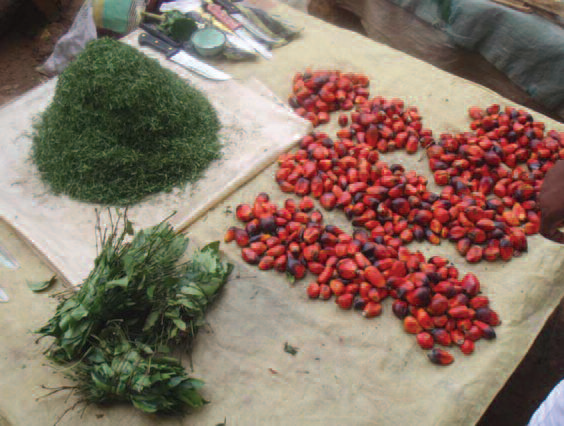Wild food, prices, diets and development: sustainability and food security in urban Cameroon
 Sneyd, Lauren Q.
Sneyd, Lauren Q.
Sustainability (2013) 5 (11) 4728-4759.
This article analyses the ways that wild and traditional foods contribute to the food security of urban households in southern Cameroon based on empirical, qualitative data collected from 371 household and market surveys in Cameroonian cities.
The survey data suggest that many wild/traditional foods are physically available in Cameroonian cities most of the time, including 66 wild fruits, vegetables, spices and insects. The availability of these foods depends on the season, weather and access to the surrounding tropical forest. Cameroonians spend considerable amounts of their food budget (25%) on wild/traditional foods and many believe that these foods are necessary for the preparation of routine household meals.
However, low wages and the high cost of city living are impacting household access to wild/traditional foods. Households are substituting these foods with cheaper, lower quality alternatives such as imported rice. Consequently, traditional diets are changing and urban residents of Cameroon face a transition away from the wild/traditional nutrient rich foods they prefer towards less nutritious foods. The author calls for further research into the effects of this change on food security, nutrition and public health outcomes.
For more information visit http://www.mdpi.com/2071-1050/5/11/4728

